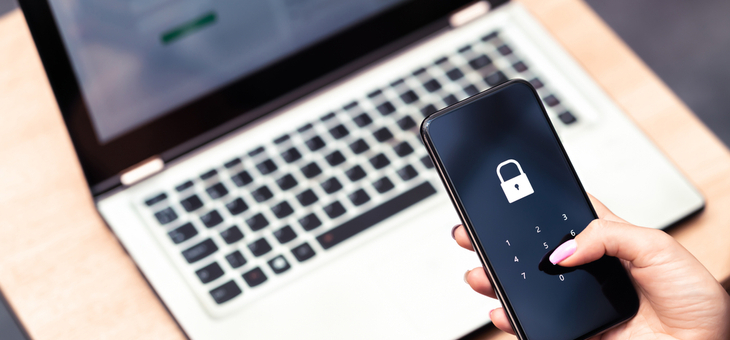Cash is no longer king when it comes to handling personal finances in Australia. Online banking is the preferred choice now for the majority of the nation. According to the Australian Banking Association (ABA):
- 80 per cent of Aussies prefer to transfer money, pay bills or check account balances online
- 71 per cent of smartphone users use their digital wallet weekly
- ATM withdrawals of cash have more than halved since 2012.
However, as the use of online banking rises, so too do scams, hacking attempts and security flaws. So, how can you make your online banking experience more secure?
- Regularly check your transaction history to be on the lookout for any unexpected or suspicious payments. Report anything unfamiliar to your bank.
- Never disclose your user information or password to anyone.
- Do not store a list of passwords on your phone unless they are protected in a special, secure password app.
- Use strong passwords with a combination of letters, numbers and special characters.
Read: Is banking on my phone safe?
- Avoid using the same password for multiple programs or accounts.
- Consider using the highest security measures available, such as two-factor or multi-factor authentication.
- Don’t click links or call phone numbers in unexpected emails and texts. Scammers often use sophisticated-looking emails and SMS messages to trick you into clicking on a link, which could allow a virus to be downloaded on your computer, or to trick you into giving up your personal information such as bank account details. Be suspicious of all incoming messages requesting you to click on a link or to give up personal information.
- Don’t answer calls from unknown or blocked numbers – allow them to go to voicemail so you can verify if the caller is legitimate.
Read: Why Aussies fall for scams so easily
- Always contact your bank directly, using known contact details.
- Use up-to-date security software, including antivirus.
- Activate security on your home router to prevent others from accessing it.
- Avoid accessing your account from a public computer or unsecured wireless network.
- Never leave a public computer unattended when signed in and always log out when you’ve finished.
- Make sure that you never enter your banking details on a shared computer, such as at a library or at work where more than one person uses your computer.
- Check your privacy settings on social media platforms. Remove personal information such as your email, date of birth and phone number, as this could increase your risk of identity theft. Thieves can use this information to build a profile about you.
- Investigate all online requests for information, such as who is asking for it, how it will be used and where the company is located.
- When filling out forms or signing up to mailing lists online, be wary of what is being asked of you. If you don’t think it’s necessary to give over personal information, query the organisation asking for it, or, if possible, leave the field blank.
- Use banks’ security features. For example, if you lose your card, you could use your banking app to ‘freeze’ it, so no-one else can use it. Some banks will also let you block specific purchases, for example, ones related to gambling.
- Take advantage of security features offered by your bank. Services such as transaction alerts could help you to see in real-time if a transaction has been made or a card has been used in an unusual location.
- Inquire about the option of blocking international transactions, or other types of transactions, from a card or account type.
Read: How older Australians can fight back against scammers
- Look into whether Pay ID could help to keep your details safe if you need to share your bank details.
- Use ATMs inside the bank, if you’re worried that a machine on the street may have been tampered with.
- Store and dispose of documents containing sensitive information carefully. Secure your mailbox to prevent anyone from accessing it without a key. Shred or destroy bank documents, bills, or anything that includes personal information.
Do you use online banking or still prefer to go to a branch? What do you do to ensure your personal details are safe and secure? Let us know in the comments section below.
– With PA
If you enjoy our content, don’t keep it to yourself. Share our free eNews with your friends and encourage them to sign up.

